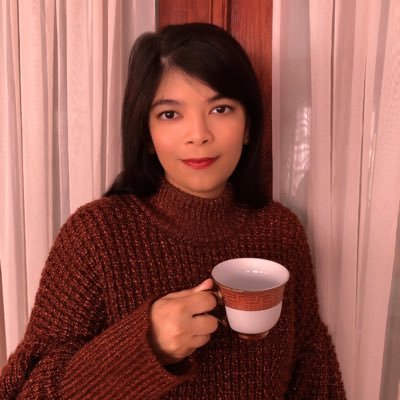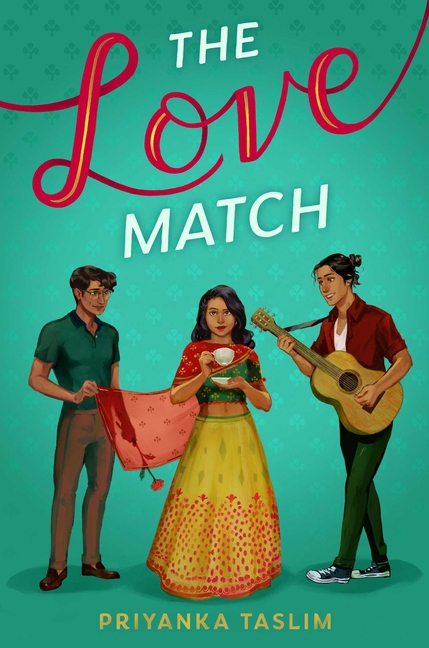From Teaching to Writing

TeachingBooks asks each author or illustrator to reflect on their journey from teaching to writing. Enjoy the following from Priyanka Taslim.
Reframing Joy as Literature in the Classroom
by Priyanka Taslim
Author of The Love Match
Dear English teachers, we’ve got to talk about “literature!”
To give you a little background on me, I am the author of the debut young adult romance, The Love Match, which will be on shelves January 3rd, 2023. In addition to that, I’ve been a high school English teacher myself for nearly a decade. It was my own English Language Arts teachers who helped to foster a love of reading and writing in me. (Well…some of them—I still harbor a tiny grudge against the fourth-grade teacher who gave us what I thought were private journal assignments and then snarkily read my entry aloud without permission.) These teachers were the ones who let me keep some of the books I treasured most from their classroom libraries, which I can now appreciate even more for its generosity since I’m fully aware how scarce resources can be for underpaid and undervalued educators, especially of predominantly Black and brown students. It was these teachers who told me I should keep writing when I started.
English teachers were the reason I became one myself, and to an extent, became an author. So please understand that I have the utmost respect for you!
But…
While I enjoyed dissecting the books on my class curriculum simply because I had a knack for it, the books that I really loved were not those “classics.” It was because of the teacher who let me keep a copy from her Artemis Fowl class set, the teacher who let me read Kristiana Gregory’s The Royal Diaries series about various princesses throughout history, the local librarians who had all the Princess Diaries novels and xxxHolic manga I wanted, that I kept devouring books. Everything students find in their favorite shows, movies, and games—the thrills, the romance, the cool world-building, the stakes—they can find in books too, if we encourage them to do it.
I know what I’m saying isn’t necessarily a revolutionary concept. There have been wonderful movements spearheaded recently by brilliant educators, librarians, and authors to disrupt and diversify the classroom by incorporating new classics by marginalized authors, so more children learn to empathize with others and know they’re deserving of being heroes in stories as well. These pioneers have bravely faced book bans and harsh criticism throughout the country. The books that they fight for are so important—yet even then, many English classrooms tend to curate which of those books are worthy of being read by students.
I rarely read books by other South Asian or Muslim authors growing up. Whenever I sought these books, many of them were translations of literary novels intended for adults that an English-language audience could find value in—not something most children would be drawn to or relate with. I never expected to find diaspora Bangladeshi protagonists—not when I would constantly hear “What even is Bangladesh? Aren’t you Indian? Or Middle Eastern? Is that even in Asia?”
When I did find books that even slightly connected with my experience, they were what many now call “issue” books. Books about young brown girls forced into arranged marriages by cruel parents. Books about Islamophobic or racist incidents. Books about religious conflicts, like whether a girl might want to start veiling or remove her hijab. Books that were considered valuable because they could teach people outside of the experience reflected what it was like to be us. At that time, those books were often written by and for white people.
“I didn’t want to be anyone’s teachable moment.”
Meanwhile, I was facing a lot of this in my reality back then. My family was wonderful, but I was severely bullied at school, particularly in the wake of 9/11. Although I recognize now—and knew even then—that there could be merit in stories like that, that they could foster empathy, that people could learn from them…I didn’t want to be anyone’s teachable moment. Instead, I sought out books with swoony romances where I imagined “tall, dark and handsome” might be a guy who belonged to my community. I immersed myself in fantasies where I could pretend to step into the shoes of “olive skinned” heroines. Pretending was better than the reality I was offered even in books that were “about” me.
It was much harder, however, to lie to myself. I internalized the messages I read. I feared there wasn’t a place for me in anything but stories about pain. There is value in narratives exploring activism and oppression. They are an exercise in empathy, especially when written with nuance by authors from marginalized communities about characters who reflect their own lived experiences.
“They want stories that tell them they’re worthy of being loved, worthy of being magical, worthy of being the heroes—frankly, even worthy of being on page, because that has not been a given.”
But many of your students are like I was. They’re seeking joyful books. Adventure books. Fantasies. Romances. Scenic historical novels. Books that will make them laugh or set aside their own anxieties for a time because they’re so busy worrying whether the protagonist will succeed in staging a heist or getting the boy of their dreams. They want stories that tell them they’re worthy of being loved, worthy of being magical, worthy of being the heroes—frankly, even worthy of being on page, because that has not been a given. They can simply flip on the news for narratives where they face oppression. What’s worse, many have concrete personal examples of that oppression already.
When I tell other teachers about my book, most are excited for me and absolutely lovely! Some, however, assume that The Love Match being a young adult romantic comedy means that it has no literary value—that all “genre fiction,” particularly when written for a younger audience, especially if that audience is mainly composed of women and girls as in the case of YA, has no merit. This doesn’t take into consideration that telling children characters like them, and stories where they get to be happy, are not worthy and might be what contributes to their lack of engagement in reading.
Children from marginalized communities are already disproportionately disenfranchised in education because of a variety of factors. Educators who discourage them from seeking out certain books they might otherwise take interest in because of assumptions made about their genre, age category, and literary value will only compound the harm these children and marginalized authors like me face.
“I wrote the book specifically with my students in mind, so it would reflect some of their experiences and resonate with them while still providing the escapism and joy that they deserve.”
As an educator myself, I put a lot of thought into writing the book I wanted to read as a teen, but also in its themes, the character arcs, the conflicts and stakes, and other topics I regularly analyze with my students in the classroom. I wrote the book specifically with my students in mind, so it would reflect some of their experiences and resonate with them while still providing the escapism and joy that they deserve. It is a study in classism, tackling grief and change, and growing up in the diaspora—themes many teenagers can relate to—even while including tropes like fake dating, love triangles, and matchmaking.
I hope that other educators won’t dismiss my work, or the work of my marginalized peers, because of limited ideas about what kinds of books are literary and meritable. It often feels easier to tell our students to get the books they want at the library, but the reality is that we can do much of the work of changing their perceptions about reading in our classrooms.
Joy can be an act of resistance. Are you ready to join the revolution?
Books and Resources

TeachingBooks personalizes connections to books and authors. Enjoy the following on Priyanka Taslim and the books she’s created.
Listen to Priyanka Taslim talking with TeachingBooks about the backstory for writing The Love Match. You can click the player below or experience the recording on TeachingBooks, where you can read along as you listen, and also translate the text to another language.
- Hear Priyanka Taslim talk about how to say her name
- Listen to an interview with Priyanka Taslim about The Love Match
- Discover Priyanka Taslim’s page and books on TeachingBooks
- Visit Priyanka Taslim on her website, Twitter, Instagram, Facebook, TikTok, and GoodReads.
Explore all of the For Teachers, By Teachers blog posts.
Special thanks to Priyanka Taslim and Simon & Schuster for their support of this post. All text and images are courtesy of Priyanka Taslim and Simon & Schuster, and may not be used without expressed written consent.



Leave a Reply